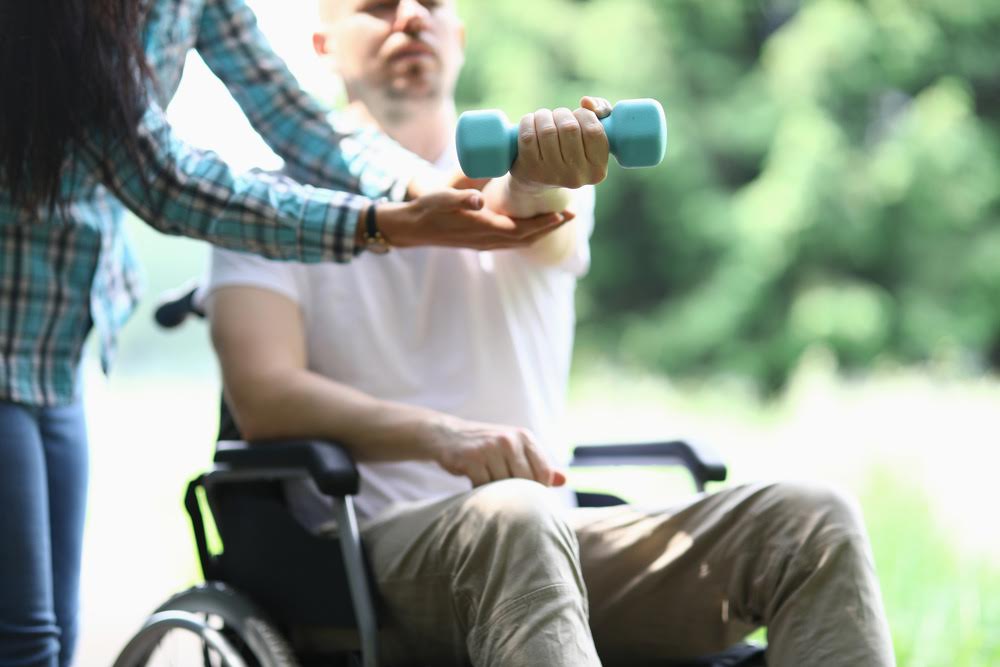Exercise is a crucial part of any terminal illness regimen, but it can be hard to find the motivation to keep going. Terminal illnesses are often debilitating and exhausting. And the last thing anyone who’s sick wants to do is exercise. But it can be one of the most vital parts of their treatment plan.
Exercise is a powerful tool that many people use to improve their mood, mental health, and physical well-being. It can help with various psychological and physical conditions such as anxiety and depression, obesity, diabetes, heart disease, and stroke. Nonetheless, it does come with some challenges, especially for someone who is terminally ill.
Challenges Of Exercise
1. Physical Limitation
Physical limitations are one of the most challenging aspects of being terminally ill and old. As people get older, they may experience muscle strength and mobility changes, making it harder for them to move around and perform daily tasks.
Physical limitation may be the most obvious challenge for people with terminal illnesses. Exercise is a crucial part of living with a terminal disease. But most of these people have physical limitations that prevent them from doing it. For example, a person who has a chronic illness such as cancer might need to use a wheelchair or walker to get around.
Muscular dystrophy is a progressive disorder affecting muscles throughout the body. People with muscular dystrophy often have respiratory problems, too. Therefore, they may be unable to engage in anything strenuous like exercising.
2. Finding The Time
Finding the time is a challenge for everyone. You can exercise at home, in a gym, with a friend or trainer, at night, or during the day. You may be able to squeeze in 10 minutes of exercise each morning or evening. But if you have more free time, why not make it longer?
If you don’t know where to start, don’t worry; there are many ways to get started with exercising regularly. It can be walking around the neighborhood two or three times a week or joining an online community where they encourage users who want help to lose weight through fitness challenges.
3. Lack Of Motivation
People with terminal illnesses often lack the motivation to undergo strenuous exercise. This can be tough because wanting to exercise is one thing, but doing it is another. However, there are ways you can use your resolve and willpower to keep going even if you feel like giving up.
Firstly, setting goals for yourself will help keep you motivated and focused on what you need to do for these goals to become a reality. You should also consider recording these goals, so they don’t slip away from your memory as time passes. This way, they’ll stay fresh in your mind at all times. The last thing you want is to forget why you started exercising in the first place.
4. Fear Of Pain
Fear of pain is one of the most common reasons people avoid exercise. Most patients fear how much exercise can hurt and how their bodies respond to the activity. If you’ve had surgery or had a severe injury before, then you know that recovery can be painful and even life-threatening at times.
People with terminal illnesses may experience pain during or after exercising, leading them to avoid it altogether. They may feel uncomfortable with certain movements because of some physical pain, or it’s making them feel sick when they’re trying something new for the first time. Still, there’s no excuse why you should deal with this kind of discomfort if exercising can also help manage other symptoms like fatigue and depression.
5. Fear Of Embarrassment And Failure
You may fear embarrassment and failure if you have trouble moving around. But under the circumstances, it’s normal. Your body is not at its best. Your doctor can help you understand the difference between being able to move and walking without assistance. You may feel embarrassed asking for help, but don’t let it stop you from doing what you must to ensure you remain healthy and active.
If your exercise program is not working well enough for your needs, then there are several ways in which it can be modified until it becomes more effective. Your doctor could try another exercise program or implement one recommended by medical professionals at a hospice facility like OneSource. It is a great way to ensure that everyone gets their recommended amount of physical activity daily.
6. Feeling Tired
Many people with terminal illnesses are not able to exercise. This is due to various reasons, such as feeling too tired or having to take medications that make them sleepy.
Fatigue and low energy levels can make it hard for a person to complete any physical activity, including exercise. It often occurs because of chronic pain and other symptoms associated with terminal illnesses.
Exercise can enrich the quality of life for many people with terminal illnesses. Even if they cannot do much, there are a few things that they can try to do to get their heart rate up. For example, gentle yoga poses or walking in place for a few minutes will help raise their heart rate and make them feel better.

Benefits Of Exercises
The benefits of exercise are wide-ranging and well-documented, but it’s not always easy to find the motivation to get started. If you’re struggling with a terminal illness or know someone who is, here are seven reasons why exercise can be beneficial:
1. Exercise Promotes Better Sleep
Exercise is known to make you feel better, and for good reasons. Exercise has been proven to help improve your sleep quality by releasing endorphins in the brain, which are hormones that help you feel happy and relaxed. Additionally, exercise helps you fall asleep faster and stay asleep longer.
If you have trouble falling asleep due to stress or anxiety, working out may be just what you need to get a solid eight hours of restful slumber every night.
2. Exercise Boosts Energy
Exercise is a way to boost your energy and ward off fatigue. It can help you sleep better, feel more energetic, and less stressed.
Exercise also helps improve the balance between oxygen and carbon dioxide in the blood, which reduces the feeling of tiredness or drowsiness after exercising. Many people find they have more energy and feel better overall when exercising regularly.
3. Exercise Improves Mood
Working out can help you feel better about yourself. If you’ve been diagnosed with a terminal illness, it can be tempting to give up on everything in your life and focus on the fact that there’s no chance of recovery. But exercise is an integral part of maintaining a healthy lifestyle regardless of whether or not you’re going to live long enough for any treatments to take effect.
Exercise helps people cope with their emotions because it gives them something positive to focus on—their bodies. When you exercise, your brains release endorphins that make you feel good about yourself. It can boost your self-esteem and allow you to deal with stress more effectively. Workouts can help improve moods over time because exercise improves overall health.
4. Exercise Reduces Anxiety
Exercise can help reduce anxiety and relieve stress. This is because it triggers the release of endorphins in your body that make you feel better. Also, there’s more oxygen in the bloodstream when you’re exercising.
If you are anxious about something or are worried, then this will help calm those thoughts down. As a result, you won’t be overwhelmed or keep interfering with your daily routine.
5. Regular Exercise Improves Stamina And Endurance
If you’re suffering from a terminal illness, it’s necessary to exercise regularly. Regular exercise will help improve your stamina and endurance, which are crucial for your quality of life. You can do this by walking, jogging, swimming or even playing sports like tennis. It also helps keep your muscles strong, so they aren’t weakened by the disease.
Regular exercise helps people with terminal illnesses stay active longer, which is vital because being active helps them live longer overall. It can also help reduce pain and fatigue, which are common symptoms of a terminal illness.
6. Regular Exercise Helps Improve Self-esteem
Regular workouts can help you feel better about yourself. The more you do it, the more confident and attractive you will become. You’ll also find that your self-esteem increases due to the positive changes in your body image that come from regular physical activity. Exercise can help you feel better both in your mind and body. It boosts positive feelings, such as confidence and happiness.
Recap
Terminal illness doesn’t discriminate. It can affect anyone at any time. Whether young or old, exercise is one activity that should be a part of your daily routine. Whether you join a gym, take a yoga class, or run around the neighborhood with your dog, spending time moving your body is more important than ever.
When dealing with a terminal illness, fighting the effects of ill health can begin by finding ways to stay active and find respite from the pain and stress of day-to-day living. Develop an exercise strategy that works for you at each stage of your illness. The more you can cope with each stage, the more positive feelings you will develop about life.








